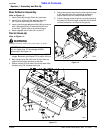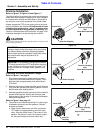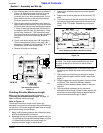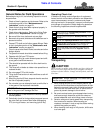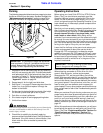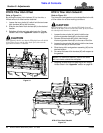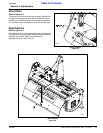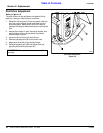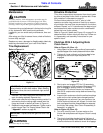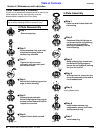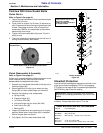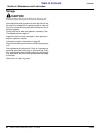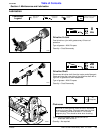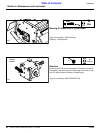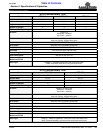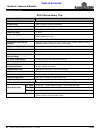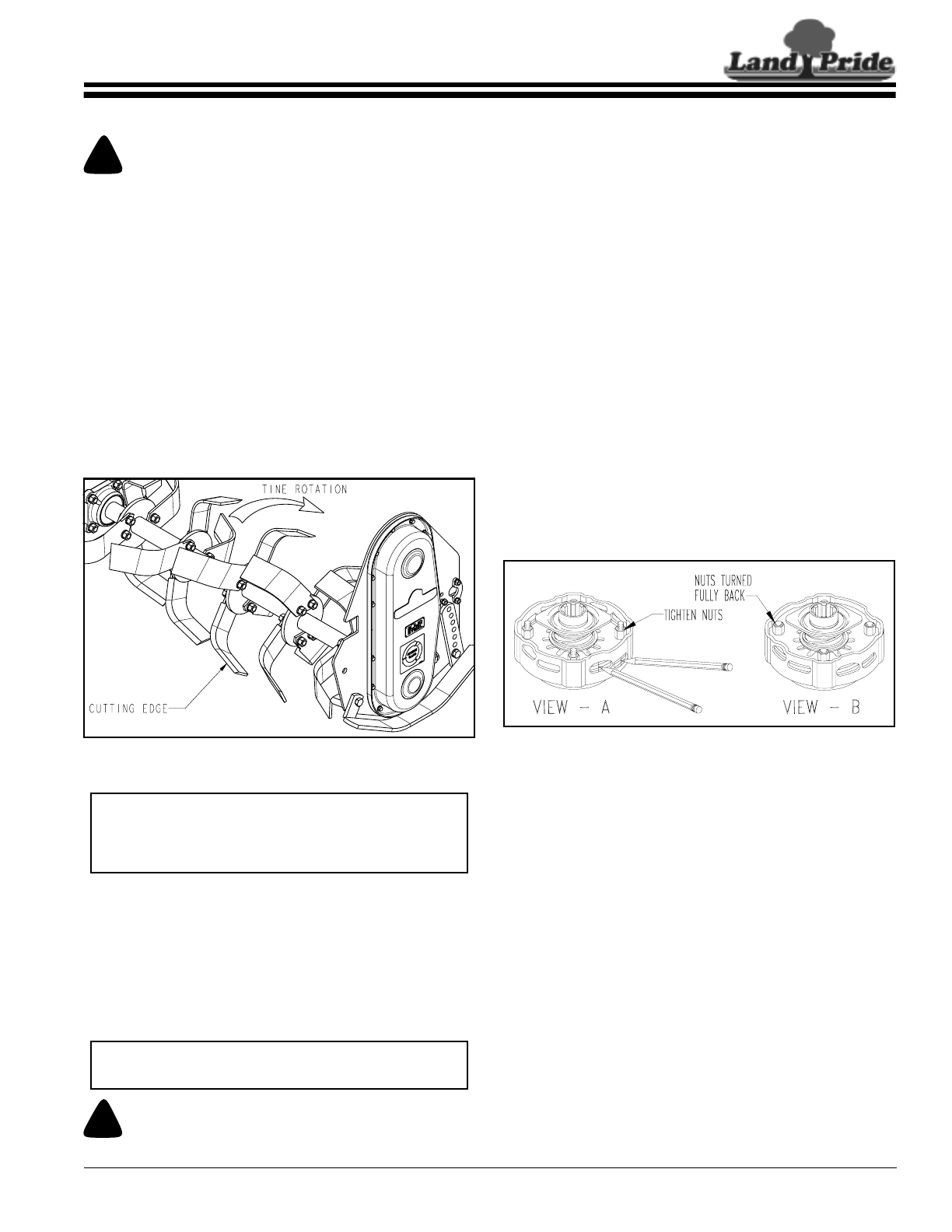
19
7/22/08
RTR10 & RTR15 Series Rotary Tillers 311-431M
Land Pride
Section 4: Maintenance and Lubrication
Table of Contents
Section 4: Maintenance and Lubrication
Maintenance
!
CAUTION
For safety reasons, each maintenance operation must be
performed with the tractor’s PTO disengaged, the Tiller
lowered completely to the ground or on safely supported
blocking, tractor engine shut off and ignition key removed.
Proper servicing and adjustment is the key to the long life
of any implement. With careful and systematic
inspection, you can avoid costly maintenance, time and
repair.
After using your tiller for several hours, check all bolts to
be sure they are tight.
Replace any worn, damaged or illegible safety labels by
obtaining new labels form your Land Pride Dealer.
Tine Replacement
Refer to Figure 4-1:
TIne Replacement
Figure 4-1
7. Remove 2 hex head cap screws and fasteners from
each tine being replaced. Remove tine.
8. Attach each new tine to the flange making certain it is
mounted so that the cutting edge crosses over the
flange and leads in rotation as shown in Figure 4-1.
9. Replace the capscrewsand fasteners. Tighten nuts to
proper torque. See The Torque Values Chart in the
“Appendix” section on page 29.
!
WARNING
Worn tines may be very sharp!
22269
IMPORTANT: Always install tines with cutting edge
facing direction of rotor shaft rotation. When ordering
replacement tines, be sure to order both right and left
hand tines.
IMPORTANT: Replace tines with genuine Land Pride
tines only.
Driveline Protection
Tiller drive components are protected from shock loads
by either a two plate friction clutch or a shear bolt. Shear
bolt protection is discussed on page 21.
Friction clutches should be “run-in” prior to initial
operation and after long periods of inactivity to remove
any oxidation that may have accumulated on the friction
surfaces. Repeat “run-in” instructions at the beginning of
each season and when moisture and/or condensation
seizes the inner friction plates.
Refer to Figure 4-2 below and Figure 4-3 on page 21 to
determine which friction clutch your tiller has. Follow run-
In, disassembly and assembly instructions for your
specific clutch.
Clutches With 4 Adjusting Nuts
Clutch Run-In
Refer to Figure 4-2 (View - A):
1. Using a pencil or other marker, scribe a line across the
exposed edges of the clutch plates and friction disks.
2. Tighten all 4 nuts uniformly until spring load is low
enough that the clutch slips freely with PTO
engaged.
Clutches With 4 Adjusting Nuts
Figure 4-2
3. Start tractor and engage PTO for 2-3 seconds to
permit slippage of clutch surfaces. Disengage PTO,
then re-engage a second time for 2-3 seconds.
Disengage PTO, shut off tractor and remove key.
Wait for all components to stop before dismounting
from tractor.
4. Inspect clutch and ensure that the scribed markings
made on the clutch plates have changed position.
Slippage has not occurred if any two marks on the
friction disk and plate are still aligned. A clutch that
has not slipped must be disassembled to separate
the friction disk plates. See “Clutch Disassembly &
Assembly” on page 20.
Refer to Figure 4-2 (View - B):
5. Turn all 4 nuts fully back if no two marks on the
friction disk and plate are still aligned. Clutch is ready
for use.
6. The clutch should be checked during first hour of
cutting and periodically each week. An additional set
of scribe marks can be added to check for slippage.
23696



